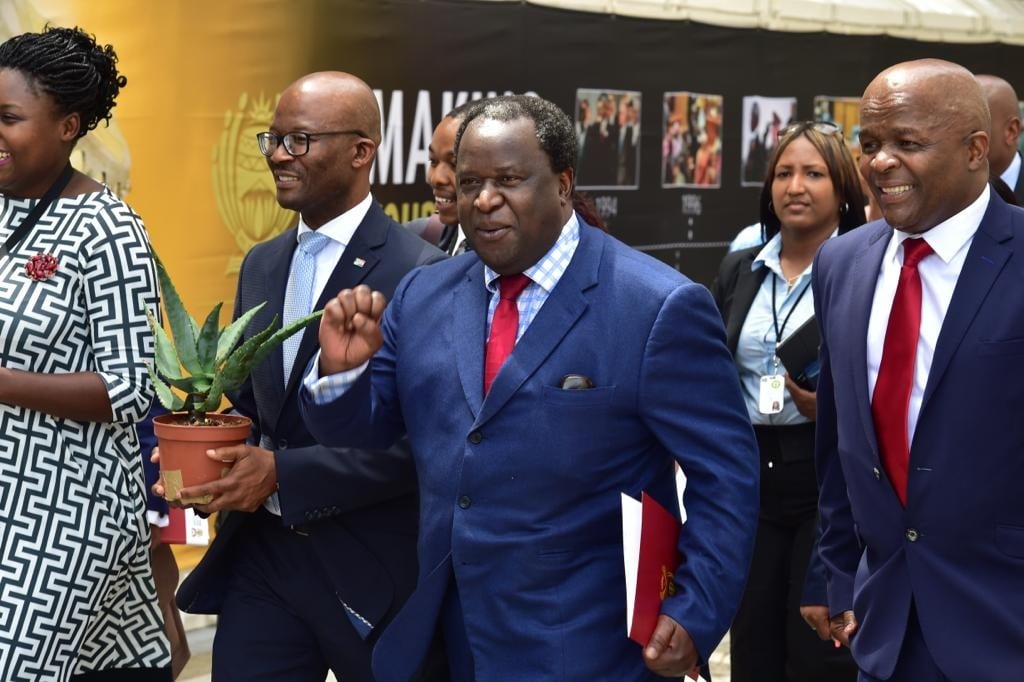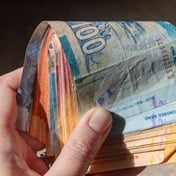
The 2019 budget review report deceptively promises that this year’s budget speech will “not increase taxes” but actually a number of minor taxes will increase from the start of the new tax year on April 1.
Major taxes like valued added tax (VAT) and corporate income tax won’t increase in the upcoming 2020 tax year.
However, the budget speech relies heavily on fiscal drag – basically a surreptitious way of increasing personal income taxes.
According to the document, the budget “will not increase tax rates in any category. Instead, they will increase collections by not adjusting for inflation.”
That is effectively a tax increase of R12.8 billion – the vast majority of extra revenue National Treasury hopes to scrape in.
Fiscal drag operates by having people, who have normal inflation-related increases in pay, jump into new higher tax brackets because the brackets have not also moved up by at least inflation.
“Sin” taxes on alcohol and tobacco will be hiked.
These will increase, but these increases are automatic and based on market prices, not on deliberate tax increases, said the budget review report.
Another tax being increased is the Health Promotion Levy, popularly known as the sugar tax.
It will increase from 2.1 cents per gram of sugar in a soft drink – to 2.21 cents.
Another new tax that will hit motorists this year is the carbon tax on petrol and diesel.
This tax will kick in in June this year and add nine cents to a litre of petrol and 10 cents to diesel.
The existing levies on fuel also go up “by less than inflation”.
Treasury estimates that taxes will become 41.8% of the pump price in Gauteng compared with 40.6% before the increases.
The rest of the carbon tax is also set to start in June this year despite key regulations still not being finalised. There will be a “consultation workshop” on offsetting the tax in March and new regulations around sectors with high exposure to foreign competition will be published before the end of February.
Treasury also seems convinced that the end of the Tom Moyane era at the South African Revenue Service (Sars) should increase tax collections by restoring efficacy.
The budget review held up the outcomes of the recent Sars commission, which found Moyane’s reign at the tax collector was characterised by “maladministration and abuse of tender procedures”.
The commission’s recommendations will be implemented in the near future, Mboweni promised.
Among the things that knock down tax collection from companies was the poor performance of the mining sector and the financial sector.
Eskom’s massive diesel-fuelled emergency plants are contributing too.
“Higher diesel refund payments to electricity generation plants and primary producers, such as farmers and mining companies, have slowed fuel levy collections.”
The VAT increase from 14% to 15% brought in about what was expected, but much of that flew out the window as VAT refunds, said the budget review.
Almost all categories of tax collection under-delivered.
Personal and corporate income taxes delivered R21 billion less than expected.
VAT alone brought in R22.2 billion less than hoped.
This was due to Sars trying to clear out the so-called VAT credit book – unpaid VAT refunds due to taxpayers. It had previously been alleged that Moyane’s Sars was intentionally withholding these refunds in order to inflate Sars’ apparent performance.
Tax expenditure
The budget review pointed out that tax expenditure on various incentive schemes was growing faster than expected, eating away at tax revenues.
“Compared with the 2018 budget, the average share of tax expenditures to nominal GDP increased significantly, implying much higher foregone revenue,” said the document.
Since 2014, tax breaks have grown by R52 billion or 7.4% compared with GDP growth of 5.1%.
One recent addition to the suit of tax breaks is the venture capital incentive that cuts taxes for people who contribute to venture financing for investments in small companies.
The incentive as a whole is still a small part of the overall tax expenditure, but has shown a highly concentrated pattern.
About half of all spending on the venture capital incentive goes to 61 companies out of the more than 3000 who participate.
The employment tax incentive, known as the youth wage subsidy, climbed to R4.6 billion in the 2016/17 – the last year the budget has estimates for.
Treasury wants to expand it in line with the CEO Initiatives’ Youth Employment Service scheme, which hinges on a lot of new jobs for young people being subsidised by government.
In the new budget, a major change is made. The scheme’s maximum R1000-a-month subsidy will now go to young people earning R4500, not R4000.
In the course of 2018 another major increase in the scope of the subsidy was announced.
It will now apply to all workers earing below R6500 in special economic zones, no matter their age.
IN CASE YOU MISSED IT
Brics Bank soon SA’s biggest development commitment
South Africa’s subscription for shares in the New Development Bank set up by the Brics counties, which are Brazil, Russia, India, China and South Africa, will soon displace the International Monetary Fund (IMF) as the country’s largest exposure to a multilateral funder.
According to the statistical annexures of the budget review, South Africa’s subscription for shares in the bank will be R89.4 billion by 2021 compared with the current R50 billion.
This reflects shares that have not been paid for, but can get called up if the New Development Bank ever fell into financial trouble.
Similar shares in the IMF currently total R80 billion but will only grow to R85 billion by 2021, getting eclipsed by the New Development Bank.
South Africa also has shares in the World Bank worth R25 billion and the African Development Bank worth R47 billion which will not grow much over the next few years, according to the budget.
These commitments are very unlikely to ever get called up, Treasury said.
Grants
Social grants will be increased by 5% this year, reaching R1780 for the old age grant and R425 for the child support grant.
Total grant expenditure will likely increase from R192.7 billion to R207 billion with a minimal amount of this increase being due to additional beneficiaries.
Old age grants remain the major expense at R76.9 billion with child support costing R65 billion in the year.
The number of child support grant beneficiaries is estimated to increase by 1.5% while state pensioners are set to increases by 3.5%.
E-tolls
A once-off bailout for the Gauteng e-toll roads in getting cut this year, reducing expenditure on the ill-fated project from R6.3 billion down to R633 million by 2022.
WHO GETS WHAT
The boss’s party
The presidency’s budget of R552 million will increase to R655 million in 2022, mostly because President Cyril Ramaphosa is reestablishing an old research and support unit that the presidency used to have.
The inauguration of the new president after the 2019 elections, most likely Ramaphosa, will get R120 million.
So long Hlaudi
The SABC is set to completely abandon the 90% local content target set by controversial former chief operations officer Hlaudi Motsoeneng.
The new targets for local content up to 2022 will severely impact the local industry. They are 55% for SABC 1 and 2 and only 45% for SABC 3.
The spending on local television content will fall from R2.55 billion last year to R2.28 billion this year. It won’t recover to historic levels in the next three years.
Over the next three years the SABC will also spend R7.2 billion on local radio content, the budget’s analysis of expenditure added. This will also decline year after year from R972 million this year to only R812 million next year.
The budget also envisions a personnel freeze at the SABC with employee levels staying at 3635 until at least 2022.
Fewer trips please
The department of international affairs has been given a target to reduce the number of international trips it organises to meet “high level potential investors”. Last year it had 161 such trips, but its target will be 90 a year from now on. This is to keep “in line with budget allocations”.
Fees still falling
In the wake of the Fees Must Fall campaign and renewed protests at technical colleges this year, the higher education budget reflects more major shifts in spending.
Preliminary figures show that university enrolments this year jumped from 975 837 to about 1 039 500 while technical and vocational education and training students increased more modestly to from about 703 000 to 710 000.
The big difference is that 450 000 of these students now receive some form of state support – more than double the previous year’s 225 000 – according to the budget document.
The spending at universities shot up almost 50% to R60 billion last year will reach R85 billion by 2022, according to the latest estimates.
By far most of this will go through National Student Financial Aid Scheme, not through universities directly.




 Publications
Publications
 Partners
Partners








